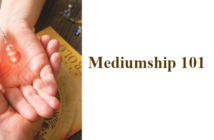Growing old is inevitable, yet there are methods in assuaging the aging process through proper diet and health support. It’s projected by 2050 that Americans aged 65 and older will amount close to 89 million people, which is double the number of elderly adults in 2010. The reason: Individuals are living longer, into their 70s and 80s.
The rising number of elderly throughout the country has stimulated advances in medical treatment, prolonging the average life expectancy. Even when a person’s situation is at its best, that individual may be marred by a weakened immune system. That health decline is simply brought on by age. Not consuming enough calories and protein along with essential micronutrients further exposes the elderly population to a weakened immune system. That, in turn, produces a higher risk for acute illness and infection.
Adopting healthy behaviors at an early age can prevent the drastic health decline down the road. For example, studies have indicated that individuals that do not smoke and participate in regular activity during their youth are less likely to develop heart disease, cancer and other chronic illnesses. It’s essential for the aging population to practice health-promoting behaviors.
Other factors influencing the aging population’s health are economic hardships, lack of accessibility to food, poor food choices and physiological changes. In many cases, seniors on a fixed income may choose to cut back on costs they can control, including fresh fruits, vegetables and organic foods, in favor of cheaper, less healthy alternatives. Unfortunately, the mindset of the elderly population is quantity over quality, thinking that they are receiving a deal on a food item when in actuality that food item isn’t deemed healthy. Processed foods, which do not contain enough vitamins and minerals, are termed as empty-calorie foods.
Nutrition:
The goal with the aging population is to follow a balanced diet, including the use of supplements where needed. Choosing a nutrient-dense, anti-inflammatory dietary strategy can minimize damage to the body’s natural repair mechanisms and provide key substrates for optimal health. It has also been seen that oxidative stress can cause significant damage regarding someone’s health—impacting sight, cognition and skin. A good diet is one that is rich in anti-inflammatory properties as well as omega-3 fatty acids, fiber, protein, antioxidants, vitamins D and C, and calcium.
One diet in particular that fits the mold is the Mediterranean diet. A study published in the JAMA Internal Medicine journal showed a Mediterranean diet, which uses olive oil or nuts, could improve cognitive function. The reason is due to the omega-3 fatty acids that are present within the diet.
Boost from Supplements:
Even with a proper diet, there is always room for an added health boost. That’s where the right supplements come into play. Vitamins that target common deficiencies include vitamin B12, vitamin D and calcium, while supplements that address chronic inflammation include probiotics, long-chain omega-3 fatty acids, turmeric and vitamin C.
Oxidative stress can cause more wear and tear within the body. Poor lifestyle habits are the ultimate trigger points for the unnecessary stress. Incorporating supplements that work to reduce the damage can help to further enhance one’s health. These include CoQ10 and ubiquinol to help support energy and repair cells.
Source: Steven M. Rachlin, M.D., of Rachlin Medical Center (927 Willis Ave., Albertson), has been practicing for more than 30 years. For more information or to schedule an appointment, call 516-873-7773 or visit RachlinMedical.com.





